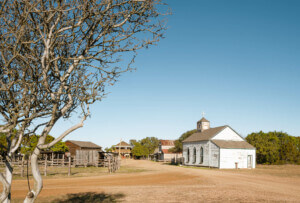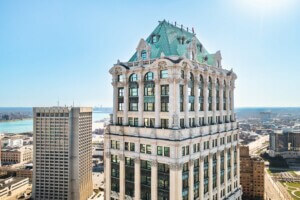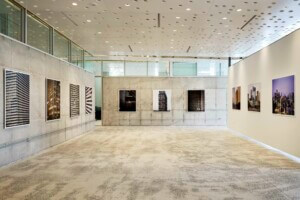Redevelopment of Detroit‘s long vacant Packard Plant my finally begin this September. The 40-acre site, located on Detroit’s east side, is owned by Spanish developer Fernando Palazuelo’s company, Arte Express Detroit.
As reported by the Detroit Free Press, the 10- to 15-year multi-phase development hinges on the City Council passing a tax-freeze plan for the site. The tax freeze would prevent property taxes from going up for the property for the next 12 years if approved. The City Council is expected to vote on the measure the in early September, after their summer recess.
The first phase of the redevelopment is targeted at the former Packard corporate offices. The 20,480-sqaure-foot building at the north end of the complex would be restored to office space for small firms and a job training center for Arte Express Detroit. Arte Express has secured the estimated $12 million for the project and is ready to begin if the tax-freeze passes the city.
The second phase of the project is planned to be a recreational complex. The third phase includes redeveloping a five-story building into live-work spaces, art galleries, and a restaurant.
Phase four will involve a collaboration with Dimitri Hegemann, owner of famed Berlin nightclub Tresor. The redevelopment will be in a seven-story building, and include a nightclub on the lower floors, a restaurant, a hostel, and a spa.
The entire development is expected to cost nearly $500 million. It would represent one of the largest developments in Detroit in decades. Palazuelo bought the 3,500,000-square-foot plant in 2013 for $405,000. After Packard closed down in 1958, it slowly vacated until the complex was completely empty in 2010. Vandals and scrappers have left the buildings in decrepit condition. Recent years have seen the site used by movie and television productions for post-apocalyptic backdrops.
The Packard plant has often been the site of architectural speculation. Recently it was one of the four sites picked by the U.S. Pavilion at this year’s Venice Biennale. Teams presented projects that ranged from urban farms and innovation centers, to a construction materials recycling center.










